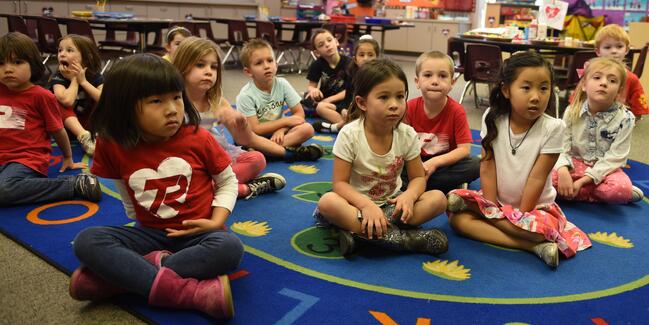
By: Cynthia Olivas, Ed.D.
Can a 5-year-old’s cognitive ability when entering kindergarten determine that child’s future level of success in school and in life beyond? Studies suggest so. According to a report by the Economic Policy Institute:
Educators, administrators, politicians and parents throughout the nation have been in serious dialogue regarding the intrinsic worth of Transitional Kindergarten (TK) to address the inequalities present among children even before they enter their first year of school.
The question at the forefront of the conversation challenges advocates of TK to identify the benefits that a quality “first year of kindergarten” will bring our youngest school-age children. Emphasized in the discussion is the belief that quality TK can be a possible solution to the inequalities present among many of our nation’s children: those who lack opportunity to engage in the types of early experiences that have proven to promote school readiness.
“A TK Program will provide the youngest kindergarteners with a readiness year that is developmentally appropriate and will better prepare them for success once they enter traditional kindergarten.”
Basically, TK is a transition year of school that offers young children an opportunity to develop skills researchers have identified as predicting children’s success in kindergarten. Participating in a quality TK program provides children a means to overcome the deficit of a late birthdate as well as other inequalities children face as a result of socio-economic or demographic status, such as:

Children affected by limitations in any of these areas typically enter kindergarten lagging behind their peers who have had opportunities to engage in early learning experiences. This early achievement gap can place these students on a trajectory for “low-resourced schools, magnifying the initial inequality,” according to the same EPI report.
Ideally, TK has the potential to “even the playing field” for children who have unequal access to experiences that assist in developing foundational skills needed for meaningful learning. To access and develop these skills, children must have early learning opportunities which foster growth in these areas prior to entering Kindergarten.
Looking at math education in particular, researchers have found a relationship between the development of early math skills and high school achievement levels. UCI researcher Greg Duncan says: “Early math skills are by far the number one predictor of later achievement, ahead of reading and attention skills.”
Though schools can’t be charged with leveling all inequalities amongst students, which clearly exist even before entering the first year of school, primary educational institutions now have the opportunity to consider how a transitional year before kindergarten could reduce these inequalities from the start.
---
Cindy Olivas, Ed.D., is an Associate Professor of Education and Interim Program Chair of the Undergraduate Child Development Program at University of La Verne. Her research interests include parents’ self-efficacy perceptions toward children’s homework tasks. She can be contacted at colivas@laverne.edu.
MIND Research Institute has worked with early childhood education professionals, brain researchers and mathematicians to develop ST Math: Transitional Kindergarten, a comprehensive math curriculum that meets the developmental and learning needs of the youngest students.

MIND Research Institute welcomes guest blogs that highlight best practices in math education, blended learning and innovative learning strategies that inspire students at all ages.
Comment